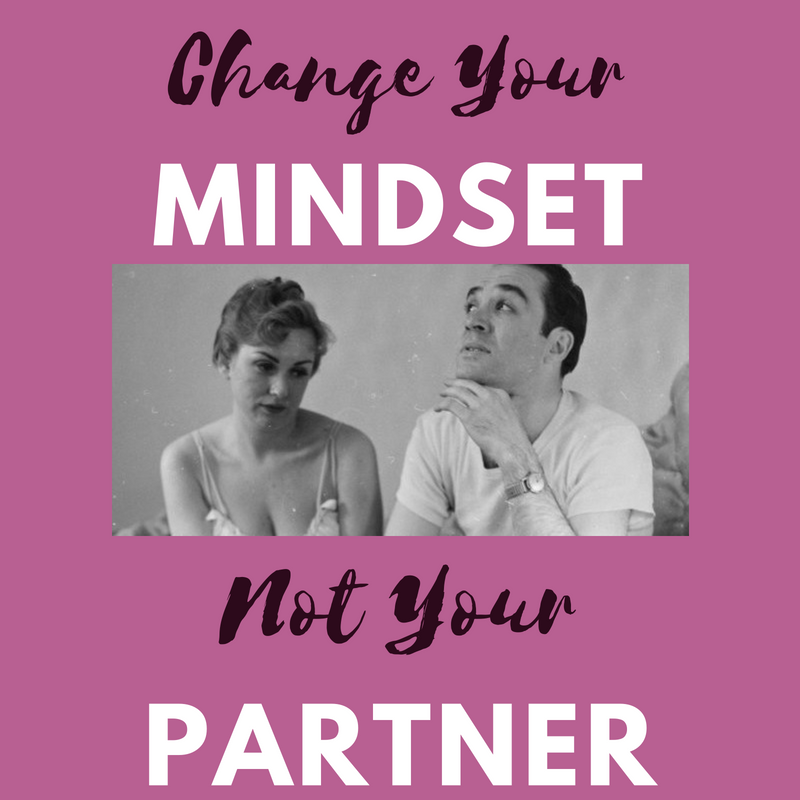 Do you have issues in your professional and/or personal relationships that are weighing you down?
Do you have issues in your professional and/or personal relationships that are weighing you down?
Do you have conversations with people in your mind but you avoid having them in real life?
Are you waiting till you feel ‘ready’ to have the conversation?
There have been many, many times in my life when I should have had conversations and I didn’t.
I was waiting till I felt ready or I was procrastinating because I feared the uncomfortable feeling that would be involved.
- I’ve learned that waiting until you are ready is the same as expecting it not to happen.
- I’ve learned that I need to stop waiting till I feel courageous enough. (I’m still a work in progress but getting better)
- I’ve learned that the person who ‘just does it’ is the person who’s going to win.
What comes first, MOTIVATION or ACTION?
The answer is action. Then motivation follows.
You have to push yourself out of your comfort zone to ‘just do it’ (Nike really did come up with a great marketing slogan)
There’s no other way.
You stop waiting for the right time.
You stop waiting till you feel ready.
You stop waiting till you know you’ll say it right.
If you keep waiting and thinking about it, you’ll increase your chances of never doing it.
What’s a conversation you need to have?
Do you keep using the excuse, -“I’m waiting for the right time”
Waiting makes it worse.
The more we wait
……..the more we think
……the more we think
……the more our brain talks us out of it!
The self-doubt, uncertainty, and worst case scenarios we play over and over in our mind keep us procrastinating and waiting.
We don’t want to:
be rejected.
feel like a fool
be uncomfortable
be criticized
to feel those raw emotions
The list of fears that keep us waiting and procrastinating goes on and on.
We start to tell ourselves:
Maybe:
“the situation isn’t really that bad”
“the problem isn’t worth mentioning”
“it will get better on it’s own”
“talking about it will make it worse”
“I won’t be able to deal with their anger”
“it’s too sensitive and it’s too emotional to talk about”
Our mind immediately thinks of all the things that could go wrong;
- How awkward and uncomfortable it may feel instead of thinking of all the positive possibilities or outcomes.
As the saying goes, everything you want is on the other side of FEAR.
You have a choice:
Face Everything And Rise
or
Fear Everything And Run
The TRUTH is:
- You can be afraid and have the conversation anyway.
- You can fear rejection and still go for it.
- Courage is what you need.
The day you start to follow your intuition and have the conversations you need to have is the day you will start to feel better about yourself.
Each time you step up and speak up, you will become more powerful.
Nobody else can have those conversations for you.
You need to be courageous, activate the power inside of you and take action.
Listen to what your heart tells you to do-don’t listen to the chatter in your head that tries to talk you out of it by telling you how many things might go wrong.
Take the risk.
Don’t talk yourself out of it before you even try.
If you want to improve relationships, you’ll have to step out
of your comfort zone and have courageous conversations.
You might not get the response you want right away.
It can take many difficult conversations and rejections
before you get to where you want to be.
Keep trying.
Five quotes by Thomas Edison.
- “I have not failed. I’ve just found 10,000 ways that won’t work.”
- “When you have exhausted all possibilities, remember this – you haven’t.”
- “Our greatest weakness lies in giving up. The most certain way to succeed is always to try just one more time.”
- “Just because something doesn’t do what you planned it to do doesn’t mean it’s useless.”
- “Negative results are just as valuable to me as positive results. I can never find the thing that does the job best until I find the ones that don’t.”
The more often you push yourself to do it, the higher your chance is of success.
Remember–
If you wait,
You may never feel like it, and
There’s a good chance it will never happen.
If you allow your feelings to run the show, you’ll choose what feels easier rather than pushing yourself to have those conversation you know you need to have.
Do you feel like having that conversation, like speaking up, like sharing what’s on your mind?
The answer is often “no”
Once you hesitate because you–
Feel too:
…..tired
…..scared
…..nervous
…..unworthy
…..vulnerable
You’ll talk yourself out of it.
You can’t always control how you feel but you can CHOOSE how you act.
Feel the Fear and Do it Anyway
Improve your relationships by having one courageous conversation at a time.
You’ll Discover—-You Can Do It.
Make sure to read my newsletter next week on specific techniques to help you have those courageous conversations!
________________________________________________________________________________
Fay Prairie is a Relationship and Mindset coach. She helps set you free from stress, anxiety, worry, negativity, DEPRESSION AND FRUSTRATION so you can start creating a Better You, a Better Life, and Better Relationships.
Check our her counseling/coaching page by clicking here
Fay also provides workshops and trainings. Check out her speaking page by Clicking Here
Contact Fay to set up a FREE 30 minute call to discover how Personalized Coaching can help you begin making positive changes in your life!
E-mail fay@fayprairie.com
Phone: 507-829-0181





